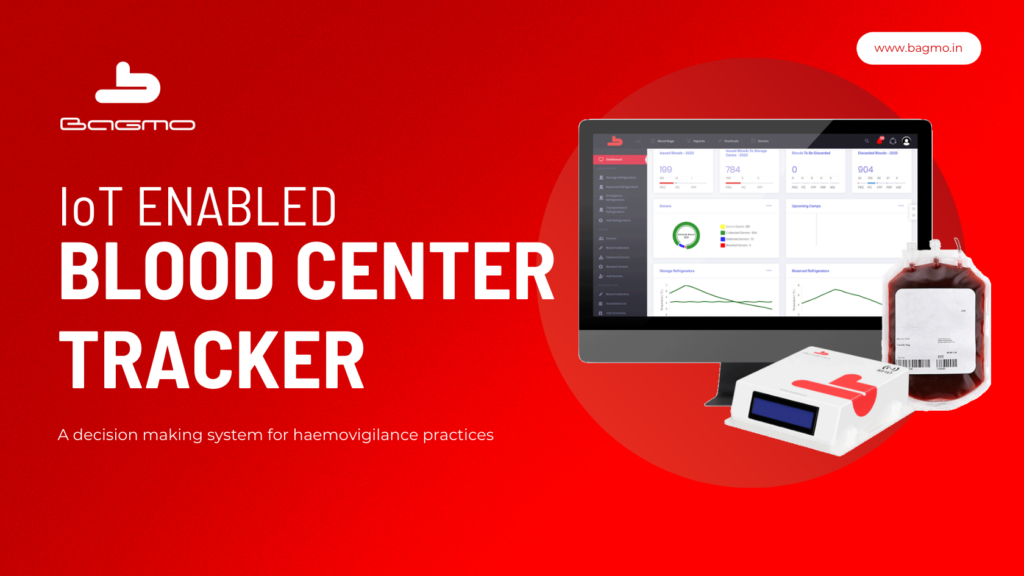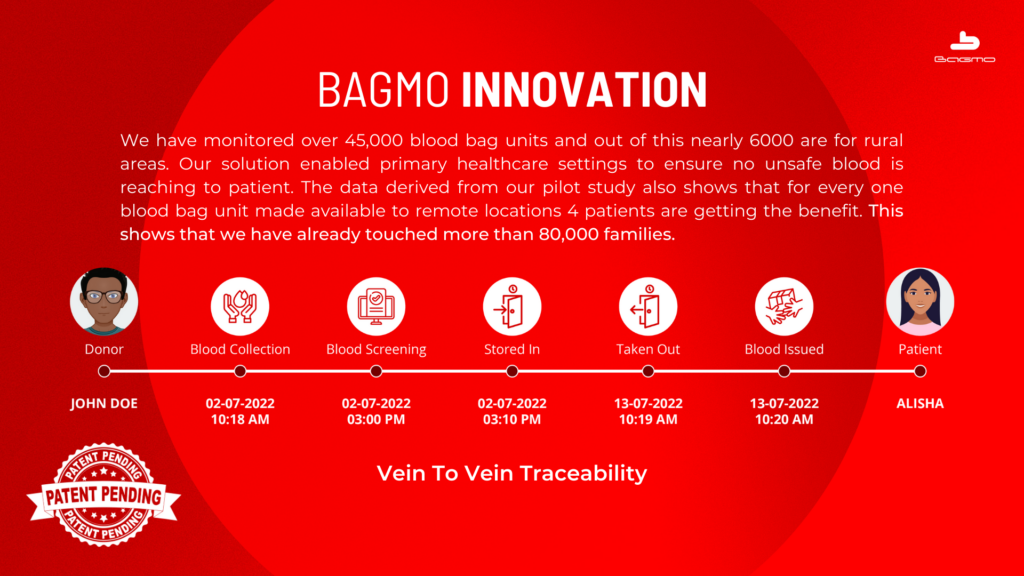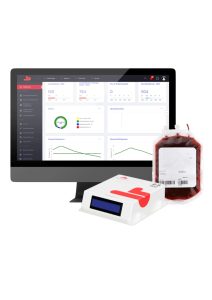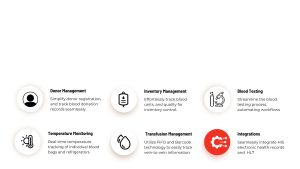The Importance of Blood Bank Management Software in Hospitals and Blood centres

Blood transfusion is a critical medical intervention that requires the utmost care to ensure the safety and well-being of patients. Therefore, it is imperative to manage blood bank inventory and transfusion processes effectively. One way to achieve this is by utilizing blood bank management software. In this blog, we will discuss the importance of blood bank management software in healthcare.
Bagmo Blood centre software can help healthcare professionals manage blood inventory efficiently. The software can keep track of blood units’ expiry dates and blood types, ensuring that patients receive the appropriate blood transfusions. It can also help monitor the blood supply chain from donation to transfusion, ensuring that the blood is safe and of high quality.
Our system offers comprehensive end-to-end temperature monitoring of individual blood bags and vein-to-vein tracking, ensuring that every single detail is recorded from the time of donation to transfusion. We also store digital records of all transfusion processes, including donations, testing, and patients’ issues.
- Blood Inventory Management: Bagmo help manage the inventory of blood units, including the tracking of donor details, blood type, and expiry dates.
- Transfusion Management: Facilitate the transfusion process, including patient details, cross-matching, and compatibility checks.
- Quality Control: Our IoT-based system has temperature monitoring capabilities to ensure the quality and safety of the blood.
- Reporting and Analytics: The System can able to generate 25+ reports and analytics, including inventory levels, donor trends, and transfusion rates.
- Integration: We can integrate with other healthcare systems, including electronic health records, HL7 and laboratory information systems.
One of the critical features of blood bank management software is donor management. The software can manage donor information, including their demographic details and medical history, and blood group. This information is crucial in identifying eligible donors and tracking their blood donations
Blood bank management software can also facilitate the transfusion process. The software can help manage patient information, cross-matching, and compatibility checks, ensuring that patients receive the right blood type. This can prevent transfusion reactions, which can be life-threatening.
Another key feature of blood bank management software is quality control. The software can monitor the temperature of the blood, ensuring that it is stored and transported under the right conditions. This is crucial in ensuring that the blood is safe and of high quality.
Reporting and analytics are other critical features of blood bank management software. The software can generate reports on blood inventory levels, donor trends, and transfusion rates. This information can help healthcare professionals make informed decisions and optimize blood management processes.
Finally, blood bank management software can integrate with other healthcare systems, including electronic health records and laboratory information systems. This integration can streamline blood bank management processes and ensure accurate and efficient record-keeping.

In conclusion, blood bank management software is an essential tool for healthcare professionals involved in blood transfusion. It can help manage blood inventory efficiently, facilitate the transfusion process, ensure quality control, generate reports and analytics, and integrate with other healthcare systems. By utilizing blood bank management software, healthcare professionals can provide safe and effective blood transfusion services to their patients.



